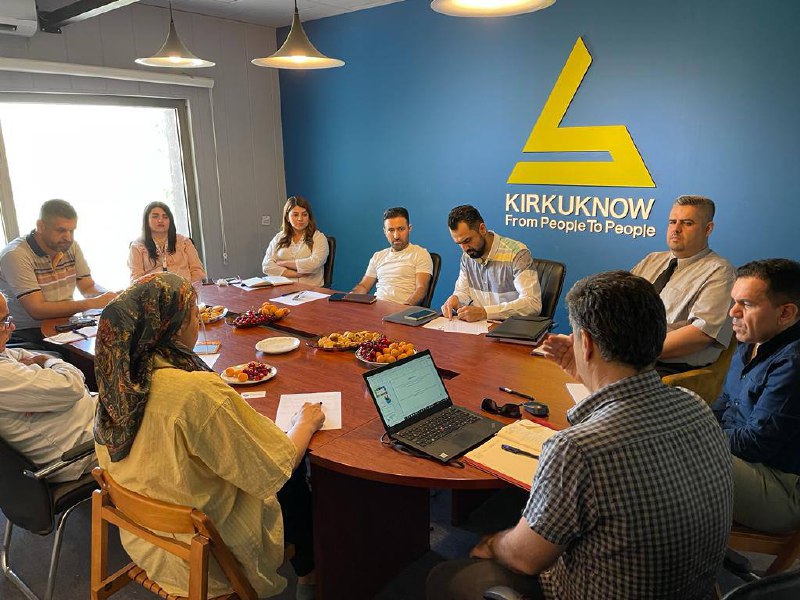The key results of a survey revealed there is a lack of communication and support between humanitarian actors and media agencies, misinformation is being spread without proper checking.
The survey was conducted within Rooted in Trust, a project implemented by Internews with several partners, including KirkukNow, funded by the United States Agency for International Development USAID to fight the massive circulation of rumors and misinformation on Covid-19 inoculation, health services and reactions to the pandemic in communities facing humanitarian crisis.
In total, (10) interviews were carried out, five of them with media and journalists, in three locations (Kirkuk, Baghdad, and Sulaymaniyah) and (5) interviews with humanitarian and health agencies in (2) locations (Erbil and Duhok).
The interview questions focused on the Covid-19 pandemic but were also open to broader emergency and public health crisis contexts where these actors needed to collaborate for acute preparedness and response on communication with affected or vulnerable communities.
The objective of (Needs and Barriers of Humanitarian Actors and Media for Active Engagement) survey was to identify and better understand the challenges faced by media and humanitarian and health agencies when engaging with one another. It can focus on the COVID-19 pandemic, but it is open to broader emergency contexts where these actors need to collaborate for acute preparedness and response with vulnerable communities.
The key recommendations include creating a proper line of communication and providing workshops for humanitarian actors and media agencies.
Internews, as an international nonprofit with 30 offices around the world, supports independent media in 100 countries, from radio stations in refugee camps, to hyper-local news outlets, to individual activists and reporters.
Rooted in Trust 2.0 (RiT) is a USAID’s Bureau for Humanitarian Assistance funded global pandemic information response program countering the unprecedented scale and speed of the spread of rumors and misinformation. With greater access to reliable and accurate information, households and individuals in target communities will be able to make more informed decisions when it comes to their health.





